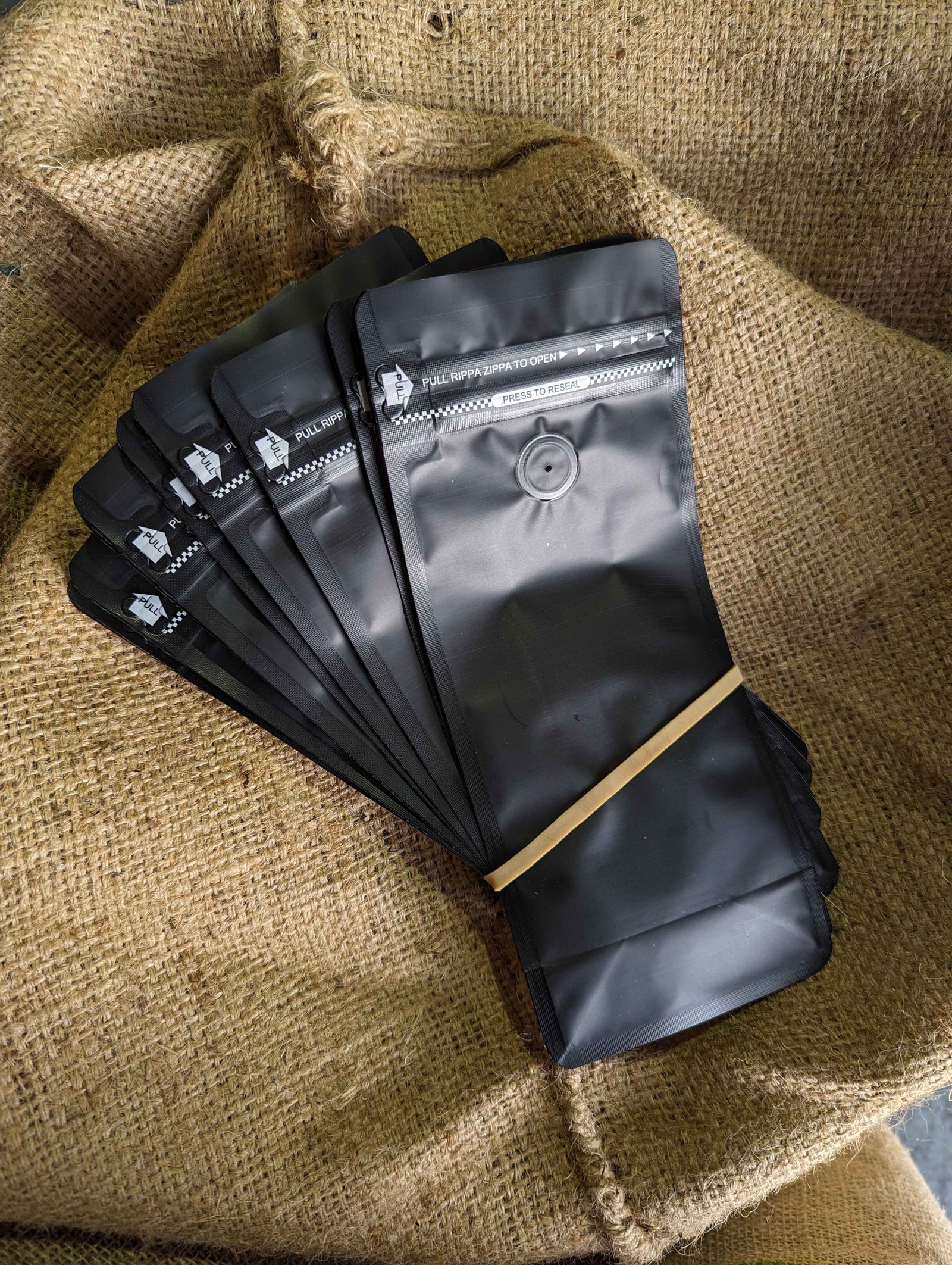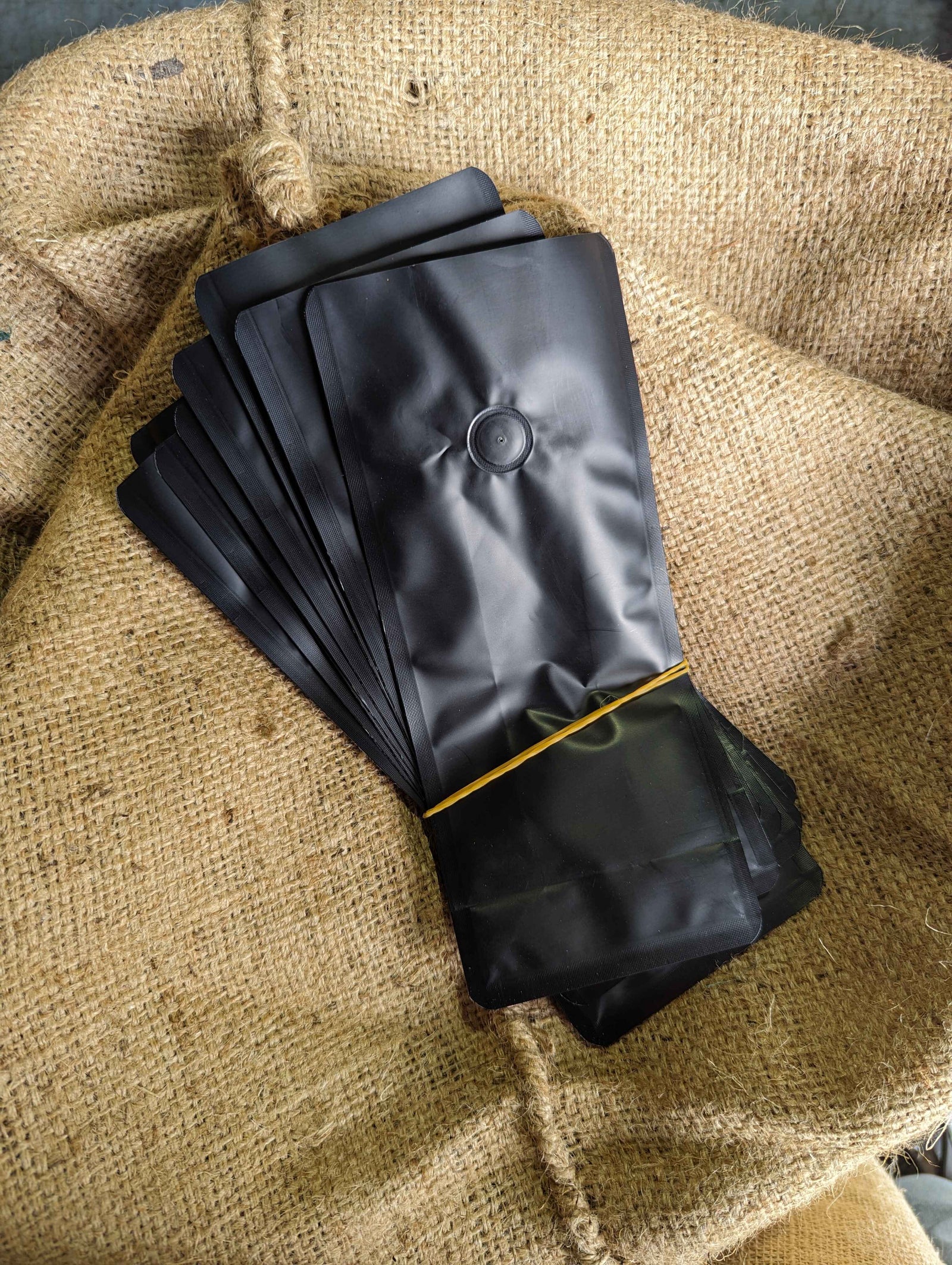OVERVIEW:
Uganda’s coffee heritage is deep-rooted in the Buganda Kingdom, where Robusta once held ceremonial importance. Today, the country is redefining its identity in specialty coffee—particularly in the highlands surrounding Mount Elgon. This Organic Uganda Bugisu Anaerobic Natural Arabica offers a vibrant cup profile layered with notes of raspberry, blackcurrant, red apple, and plum. A juicy, wine-like body leads into a long, refined finish of black tea and cinnamon—an excellent example of Uganda’s untapped potential for anaerobic natural processing and premium Arabica production.
PRODUCERS:
This coffee is produced by over 10,000 smallholder farmers participating in the Sipi Falls Coffee Project, an initiative established by Kawacom in 1999. These farmers cultivate organically certified Arabica on small plots (averaging 0.5 hectares), intercropped with food crops and shade trees. The project provides training in sustainable agriculture, good agronomic practices, and internal control systems. Social programs include clean water access, education sponsorships, and health initiatives. Over 3.5 million Ugandans are connected to the project either directly or indirectly, highlighting its immense social footprint.
ALTITUDE AND LOCATION:
Sourced from the Kapchorwa District in Eastern Uganda, this coffee grows on the western slopes of Mount Elgon, near the Kenyan border. Farms range from 1,300 to 1,900 meters above sea level, where rich volcanic soils, consistent rainfall, and cool mountain air allow for slow cherry maturation and dense, complex beans. The nearby Sipi Falls, a trio of stunning waterfalls, contributes to the region’s unique microclimate and namesake.
PROCESSING – ANAEROBIC NATURAL:
In this method, ripe cherries are sealed in fermentation tanks for an oxygen-free environment, allowing natural microbes to break down sugars and enhance the coffee's acidity and fruit intensity. After anaerobic fermentation, cherries are sun-dried on raised beds. This hybrid process combines traditional natural drying with controlled fermentation, resulting in a bright, juicy profile with structured sweetness and layered complexity.
HISTORICAL CONTEXT:
Coffee in Uganda dates back to the 19th century, when the Baganda people began cultivating wild Robusta. Arabica was introduced during British colonization, but remained a minor crop until the late 20th century. The 1990s liberalization of the coffee sector spurred Arabica growth, especially in high-altitude zones like Mount Elgon. The establishment of washing stations and processing infrastructure in recent decades has enabled the rise of specialty-grade Ugandan Arabica. Government-backed programs like Operation Wealth Creation continue to boost farmer training, seedling distribution, and quality improvements.

 Matte Black Coffee Bag Bundle - With Valve & Rippa Zippa
Matte Black Coffee Bag Bundle - With Valve & Rippa Zippa Matte Black Coffee Bag Bundle - With Valve
Matte Black Coffee Bag Bundle - With Valve






